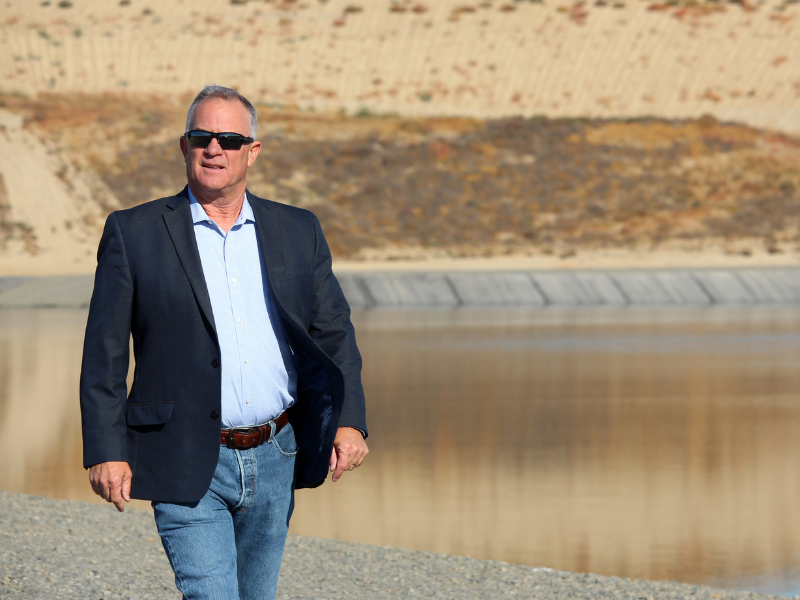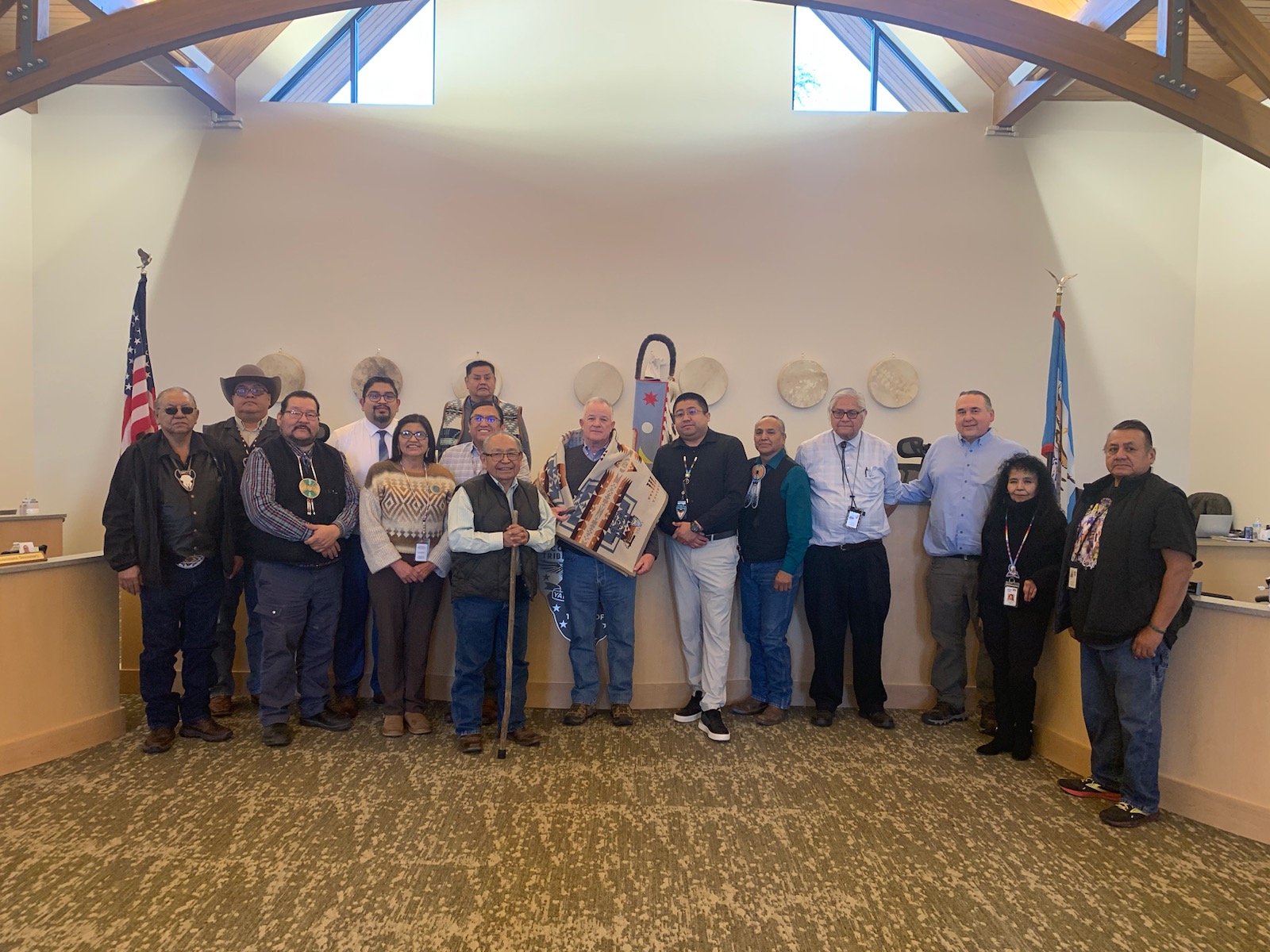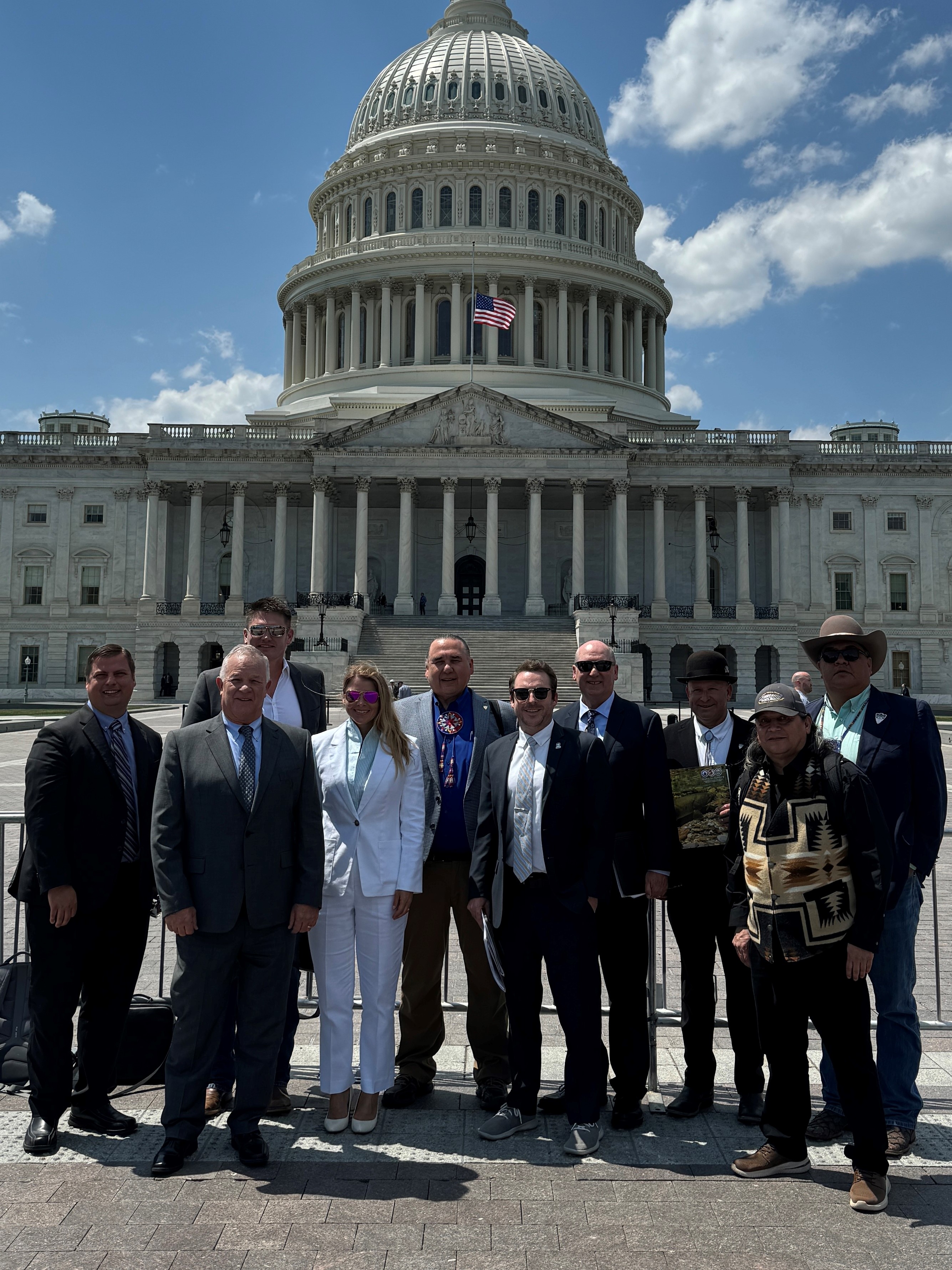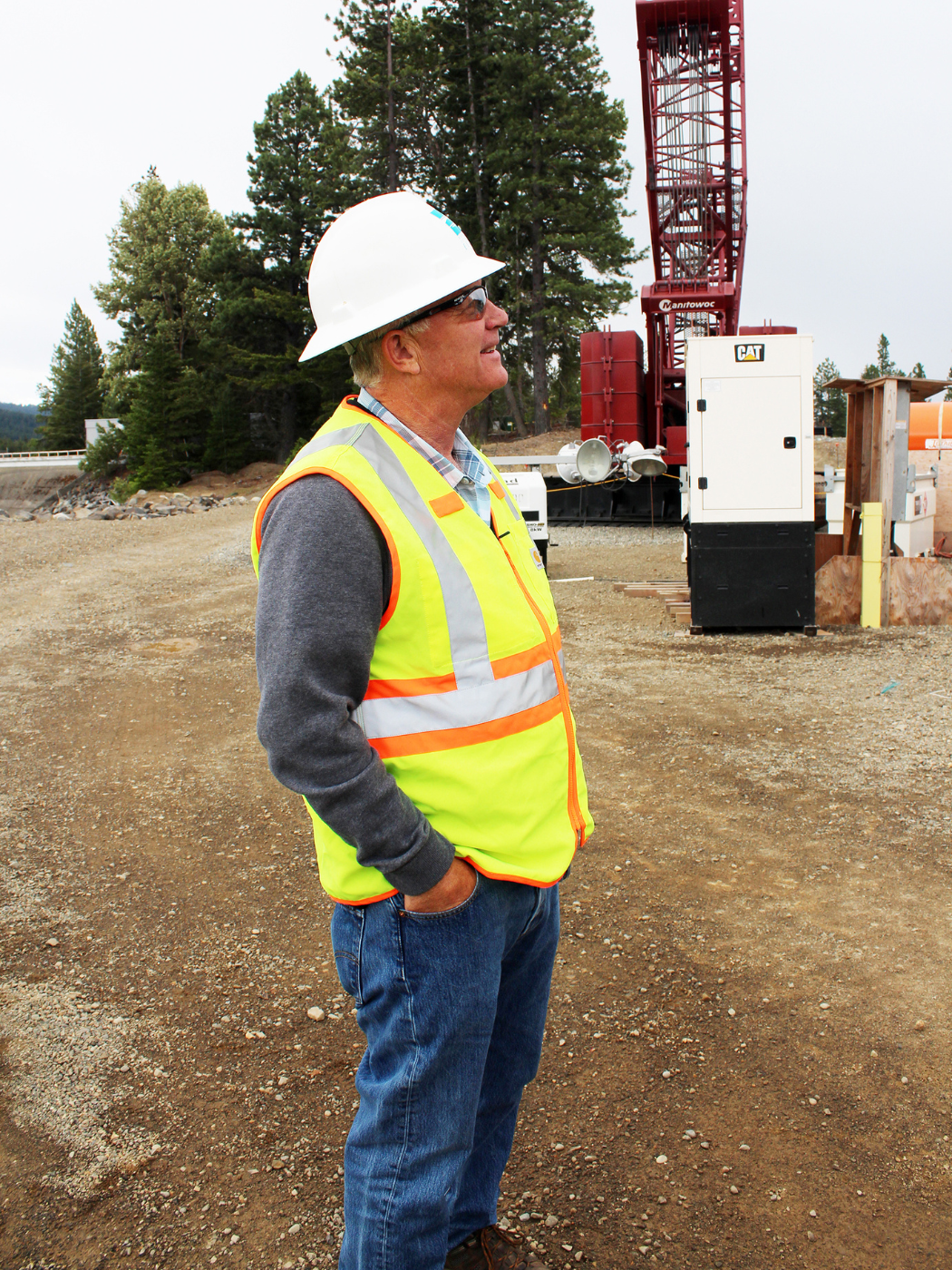
Tom Tebb at the Roza Dam in Sunnyside.
On a crisp February afternoon, the Yakama Nation Tribal Council gathered to honor one of Ecology’s own. In a moment steeped in tradition, Joe and David Blodgett draped a richly woven blanket over Tom Tebb’s shoulders. The ceremony symbolized appreciation for Tom’s steadfast service and lasting contributions to the people and environment of Washington state.
For the past 33 years, Tom has served the state of Washington and the Department of Ecology. As Tom embarks on retirement, his remarkable career and unwavering outlook on life remind us that true success comes from passion, dedication, and community.
The Yakama Nation Tribal Council honors Tom, center, with a blanket ceremony recognizing his contributions to the Yakima Basin Integrated Plan and Hanford nuclear site cleanup.
In his most recent role, Tom has led Ecology’s Office of Columbia River for the past 10 years. He is known as leader with the ability to unite divided rooms and inspire action.
Growing up in rural central Washington in the heart of the lower Yakima Valley, Tom's connection to the land began early. During his childhood on the Morrison Fruit Company ranch in Zillah, he marveled at the intricate network of canals and ditches sustaining the family’s fruit farm. That experience planted the seeds for a lifelong fascination with water management and environmental stewardship.
His journey into ecological work was further fueled by a deep-rooted appreciation for nature and a desire to make a difference.
“If you can do something you love and still make money at it, then you’ve got the world by the tail,” Tom shared with a smile. It’s clear this philosophy has guided him throughout his career.
After earning a degree in geology from Western Washington University, Tom began his career at Ecology in 1992. Since then, he’s served in many roles, including overseeing regional water resources management, serving as Central Region director, leading nuclear waste cleanup at Hanford, and most recently, directing the Office of Columbia River.
Tom's love for the environment began early in his life and inspired his career path.
Tom, second from left, in Washington, D.C. to lobby for federal funding to support the Yakima Basin Integrated Plan.
In his three decades with the agency, Tom has led the region through multiple droughts and spearheaded innovative water supply projects that are reshaping the future of the Columbia Basin.
Many of these projects fall under the Yakima Basin Integrated Plan, where Tom has been crucial to successes like the newly completed Cle Elum Dam fish passage project. He has also played a key role in finding new water sources for fish and local farmers, a critical effort in a basin where every drop counts. Tom's contributions to the Walla Walla Water 2050 Plan and Odessa subarea groundwater replacement program have a lasting impact, ensuring the basin is livable and sustainable for decades to come.
Tom visits the construction site of the Cle Elum Dam fish passage project, a first-in-the-nation design that has been in the works since 2010 and was completed in 2024.
Tom's anecdotes reveal a career buoyed by camaraderie and lighthearted moments. Whether trekking through a snowy shoreline investigation after forgetting his boots, or marveling at the unexpected sight of giraffes near Bridgeport, his ability to find joy in the everyday and share it with those around him is a testament to his leadership.
Tom’s love for Washington’s unique landscape east of the Cascades runs deep. From stories of the Yakama Nation’s “Sleeping Giant” rock structure to his cherished memories of driving across the region’s diverse topography, his connection to the land is evident. His fascination with geology has come full circle.
Looking back, Tom reflects on the influence his mentors and colleagues have had on his career.
"There were a lot of people that helped me get to where I am, and I feel like I didn’t always express my appreciation,” he says humbly.
But those who’ve worked alongside Tom would beg to differ, often witnessing his heartfelt words of gratitude and his respect for collaboration in his day-to-day work.
As for his legacy, Tom hopes he inspires a practice of kindness, professionalism, and growth in future leaders.
“You can make a difference. You can be part of something bigger. And you can be kind while you’re doing it,” he emphasizes. His career trajectory, from starting in an environmental program to leading as a respected statewide figure, showcases this truth.
Tom, right, speaks with visitors at an Earth Day event about water supply projects in the Columbia Basin.
Outside the office, Tom has long harbored dreams of being a professional water skier—a passion reflected in his decision to build his home next to the Yakima River and a water ski course. For many of us who know Tom, this illustrates his adventurous spirit and appreciation for life’s simple pleasures.
As Tom steps into retirement, he leaves behind not just a career, but a lasting impact on those fortunate enough to have worked alongside him. Ecology will undoubtedly feel his absence, but his influence will continue to guide and inspire future generations.
He reflects fondly on those who shaped his journey.
“I’m going to miss the people,” he explains. “Not so much the problems or even the work, but the people. Truly, the people are what make this work something special.”





.png)
